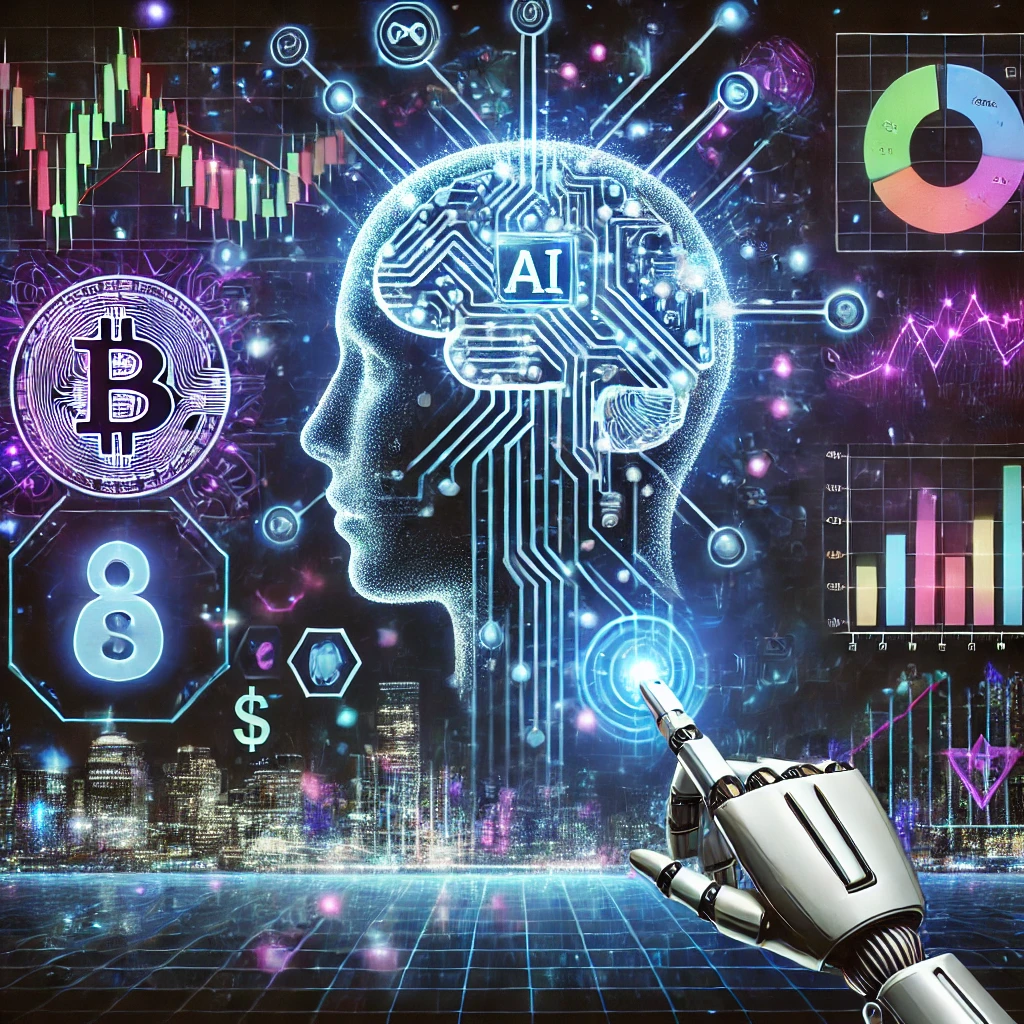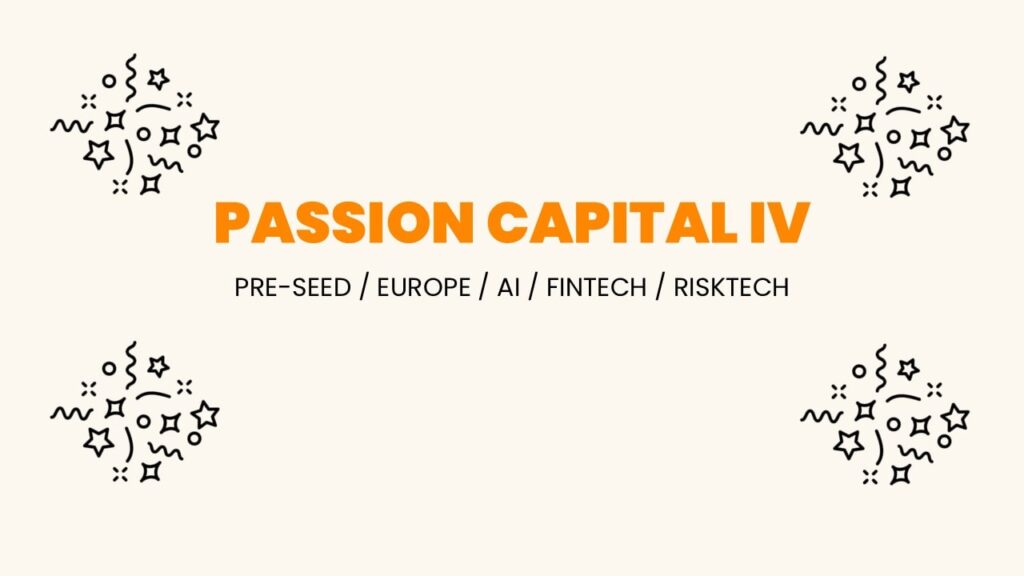Passion Capital IV LP is an article 8 SFDR-aligned fund
26 April 2024
Summary
Passion Capital IV LP (the Fund) promotes environmental and social characteristics. The Fund wishes to make sustainable investments (as defined in the Sustainable Finance Disclosure Regulation 2019/2088 (SFDR) article 2(17) and, in summary, investments in an economic activity that contributes to an environmental or social objective, provided that the investments do not significantly harm any of those objectives and that the investee companies follow good governance practices) but has set its minimum threshold at 0% meaning that it is possible that no investments will be made which qualify as sustainable investments. The Fund will promote Environmental (E) and Social (S) characteristics (Characteristics) and will invest in companies with good governance.
No sustainable investment objective
The Fund does not have as its objective sustainable investment.
Environmental or social characteristics of the financial product
The following Environmental (E) and Social (S) Characteristics will be promoted by this Fund when investing in portfolio companies:
- Diversity within the management team
- Diversity within the workforce
- Having and maintaining an Environmental, Social and Governance (ESG) policy
- Completing an annual ESG questionnaire to include carbon footprinting
- ESG as a standing item at board meetings
- Good governance appropriate for the size and stage of the company
In addition, the Fund will not invest in sectors that are contrary to progressive environmental and social norms. The excluded sectors are set out in the Investment Guidelines for the Fund, which are set out in the Investment Strategy section below.
All Characteristics will be set out in the term sheet between founders and the Fund so that the founders have early visibility of these expectations.
Investment Strategy
The strategy of the Fund is to provide long term capital appreciation for investors through pre-seed, seed and occasionally Series A investments in digital media and technology companies with a focus on enterprise “software as a service” companies, predominantly in the UK and Europe. Being a UK Fund and not marketed into the EU, the Fund is not bound by the provisions of the Sustainable Finance Directive Regulations, however the Fund has committed to align itself with the provisions of Article 8 of the SFDR as described herein. The Fund shall not invest more than 15% in any single portfolio company save where approved by the Fund’s LP Advisory Committee. The Fund will primarily invest in shares, convertible loan stock and other securities in unquoted companies and may invest up to 10% in the making of loans to such companies in connection with equity investments and up to 10% in tokens or other cryptoassets issued by such companies. The Fund will invest predominantly in companies in the UK or Europe and which have an annual turnover at the point of investment below £50 million. The Fund will not invest in listed securities. The Fund will not invest in derivatives (except for specific hedging purposes). The Fund will not invest more than 3% in any collective investment vehicle.
The checklist to assess good governance practices of investee companees are out in the ESG Investment Policy for the Fund. The governance checklist is designed to ensure that the investee companies have good governance, appropriate to their size, sector and stage, prior to investment. In summary, the checklist comprises:
- Investee companies are established as a limited liability corporate entity (in the UK or their target market) with a board of directors;
- The founders are open to non-founder directors coming onto their board of directors;
- The founders are open to regular formal board meetings;
- The early hires in the company have existing robust employment or consultancy contracts;
- The founders have demonstrated that they recognise that culture and getting hiring right are crucial to their success;
- The company has a CFO or finance-lead who is willing and able to fulfil the financial and tax reporting requirements of an early stage business; and
- The founding team is open and receptive to the promotion of the E/S characteristics listed above.
The Fund focus on digital media and technology companies leads to a natural exclusion for many industries which are controversial from an ESG perspective, however for completeness this is the list of “excluded” activities (in which the Fund will NOT invest):
- Mining, drilling or other extraction of fossil fuels
- Logging or deforestation
- Seabed trawling or other non-sustainable forms of fishery
- Meat and poultry farming unless based on production without the slaughter of animals and the creation of methane gas
- Human cloning
- The production of narcotics and/or alcohol
- Activity which is illegal in the UK or country in which the company is wholly or predominantly based, headquartered or operating, as applicable
- Pornography
- Manufacture of cluster munitions, mines, biological or chemical weapons
- So-called “Black Hat” hacking
These exclusions will be implemented through the pre-investment screening process. In the unlikely event that an investee company were to seek to change their business model post-investment to focus on an excluded activity, the Fund will seek an orderly sale of its position in that company within a reasonable timeframe and will not, pending such disposal, commit more capital to that company.
The Fund will cast its net wide for investments that meet its Investment Guidelines (above), that meet the ESG Investment Policy of the Fund, that present outstanding founders with the ambition to build companies of scale and which have any social objective or environmental objective (whether qualifying under the EU Taxonomy or not). Where companies do not have social or environmental objectives but otherwise meet the Investment Guidelines, the Fund may invest in such companies and will then promote the Characteristics within those companies (and also within its sustainable investments).
Proportion of investments
The Fund will invest fully in line with its Investment Guidelines and its “Article 8 Commitments”, each as set out in a schedule to the limited partnership agreement for the Fund (LPA), and so will only make investments that are aligned with the six E/S characteristics listed above. The Fund will seek to make sustainable investments (which may in turn fall into one or more of the three sub-categories of sustainable investments) but has set 0% as its minimum meaning that it is possible that no sustainable investments will be made. The Fund will not invest any of its capital in any other asset class, but may hold liquid investments, e.g. cash and short term deposit accounts.
Monitoring of environmental or social characteristics
The attainment of the Characteristics will be measured at the point of investment and also tracked through the early fundraising rounds of the portfolio companies using a “tracker” document for each company which will record the Fund’s view of the company’s progress and engagement on ESG issues. The Fund will take this rolling approach for two key reasons: firstly, ESG is not a “once and done” topic – there is always room for development and improvement; and secondly at the stage at which the Fund first invests, as with all early-stage investment funds, it is highly likely that the companies will not have all of the Characteristics in place (this is due to the maturity of the company, not due to objections from the founding teams).
With regard to Characteristics 1&2 (diversity), the Fund will not mandate percentage targets for gender, ethnicity, sexual orientation or any other diversity metric but the Fund representative will include diversity in their discussions with the founders relating to board hires and workforce hires. In the experience of the Fund Manager, guidance on early hires is an area where founders seek Fund input leading to meaningful influence. Progress will be recorded in narrative form in the ESG tracker documents and in percentage terms in the annual EDCI (ESG Data Convergence Initiative) ESG questionnaire.
The Fund will provide each portfolio company with a template ESG policy if they don’t already have one. It is intended that the company will take on this policy and tailor it themselves as they mature.
The Fund will require each portfolio company to complete an annual ESG report covering the metrics set out by EDCI. Those metrics may change slightly from year to year, but the core metrics are:
- Scope 1, 2 and 3 carbon emissions;
- Whether the portfolio company has a decarbonisation strategy, emissions reduction strategy and/or a net zero plan;
- Energy consumption and renewable energy consumption;
- Board composition (including women, LGBTQ, under-represented groups board members);
- C-suite composition (men/women);
- Work injuries;
- Staff turnover;
- Employee surveys and engagement in such surveys.
The Manager would expect to see positive trends on most ESG indicators as measured by EDCI and will report annually to investors on such indicators. However, it should be noted that given the extremely early stage at which the Fund will invest, annual carbon emissions (measured in CO2ET) will likely rise during the first few years of the lifecycle of portfolio companies.
Characteristics 5&6 (governance) will be set out in and made contractually binding through the investment documents signed at the point of first investment.
Methodologies for environmental or social characteristics
The methodologies applied to measure how the E/S characteristics promoted by the Fund are met comprise:
- In respect of Characteristics 1&2 (diversity): informal discussions between the Manager and the portfolio company, and progress will be noted in the Manager’s internal records;
- In respect of Characteristics 3&4 (ESG targets and reporting): sending the template ESG policy/ ECDI template (as applicable) to the portfolio company and then periodic follow-ups. In the case of the ESG policy, this will be via board meetings, to track whether the company has adapted the template policy for their own ambitions; and in the case of the EDCI reporting, will be via the Passion Capital ESG leads collecting annual EDCI submission data from those companies;
- In respect of Characteristics 5&6 (governance): informal discussions between the Manager and the portfolio company, and progress will be noted in the Manager’s internal records and, where applicable, in the company’s board minutes.
Data sources and processing
At the very early stage at which the Fund invests in companies, data on the company and the founders will be limited. The primary data source is provided by the founders themselves, being their pitch deck, which may include estimated data. This is supplemented by follow-up Q&A conducted by the Fund Manager together with the Manager’s own due diligence on the market, the technology and the founders.
The Fund will often take references from previous employers of the founders and do other background checks on the founders. Save for the foregoing, it would be rare for the Fund to rely on external third party data sources in its due diligence process.
Once the investment in the company has been concluded, the Fund has access to regular financial reporting, board materials and other information (as secured by the investment documents) which gives the Manager a good level of data on the company.
Limitations to methodology and data
At the very early stage at which the Fund invests in companies, data on the company and the founders will be limited, including ESG data. Founders may not have the experience of having implemented ESG strategies in other companies and may be unsure of their ESG ambitions or priorities.
The methodologies set forth in “Methodologies for environmental or social characteristics” comprise mainly “informal discussions” and this approach has the limitation that it may be subjective and not subject to sufficient rigour.
However, the Fund Manager believes that the methodology proposed is the most appropriate for early stage companies and allows the Fund Manager and the founding team to work together to set realistic targets for the portfolio. By working with the founding team, rather than mandating certain percentages for, say, diversity targets, the Fund Manager strongly believes that founding teams will be better placed for success on ESG topics. For this reason, the Fund Manager believes that the methodology will not adversely affect how the E/S characteristics promoted by the Fund are met.
Engagement Policies
The scope for due diligence is limited in investments in early stage companies, however, the Manager carries out due diligence as set out in its ESG Investment Policy and as set out in the “Data Sources and Processing” section above. The Q&A due diligence mentioned in that section is a standard template for founding teams, meaning that there is an internal control on due diligence: the starting question list is always the same. There are no external controls or input on due diligence.
Designated Reference Benchmarks
As mentioned above, to ensure that investee companies are committed to good governance, the investment documents set out reporting expectations, information rights, investor consultation rights, board meeting cadences and other markers of good governance and these are contractually binding on the company and, in most instances, the founders themselves. It is the policy of the Fund Manager to seek where possible for all partners to join the first few board meetings of each new investee company so that, amongst other things, the various governance strengths and ideas of those partners can be shared. The aim of the Fund is to help founders to continue to grow their corporate governance capacity alongside their commercial business recognising that future investors will value both.




